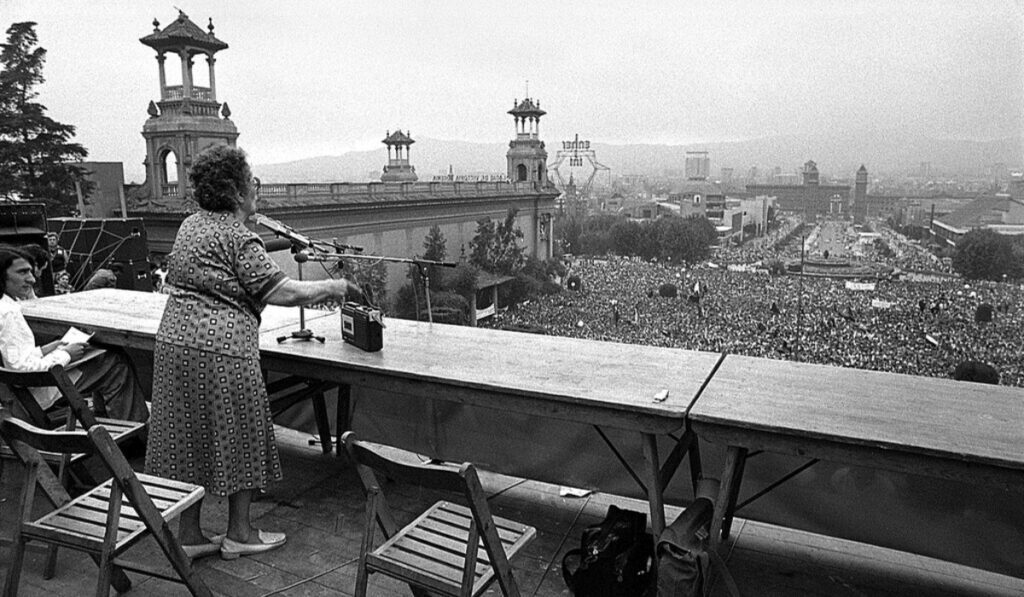The article by Chris Bambery explores the worker-led struggle that ultimately ended Generalissimo Francisco Franco’s fascist regime in Spain, emphasizing the complex legacy of that period. After the Civil War, Franco’s autarky policy severely weakened Spain, leading to its isolation until the late 1950s when economic reforms brought foreign investment, resulting in significant industrial growth. This economic upturn empowered the working class, spurring organized resistance against the fascist state, notably through the Workers’ Commissions (CC.OO) which emerged as a force for labor rights despite being illegal.
The article recounts various strikes and demonstrations, highlighting the brutal repression by Franco’s regime against dissent, including the infamous 1971 SEAT car plant strike, where police violence resulted in worker deaths. As urban areas grew, working-class neighborhoods formed, fostering a spirit of community activism that translated into broader opposition to the dictatorship.
Bambery points out that the transition from dictatorship to democracy after Franco’s death in 1975 was marked by a “pact of forgetting”—a collective amnesia surrounding the violence of the past, which still impacts Spain’s political landscape. This transition did not fully sever ties with Francoist structures; rather, many remained intact, maintaining the influence of the military and oppressive laws.
The emergence of new political parties and the legal recognition of trade unions came at the cost of sidelining the more radical aspirations of Catalans and Basques, leading to ongoing tensions. The legacy of Franco’s regime endures, rooted in the institutions established during the Transition, with significant implications for modern Spain’s political identity and its treatment of historical injustices. Overall, the article argues that while the era of fascism ended, its effects continue to resonate through Spanish society and politics today.



